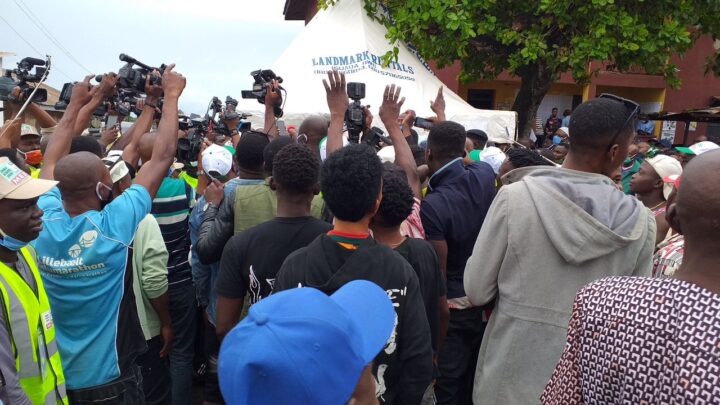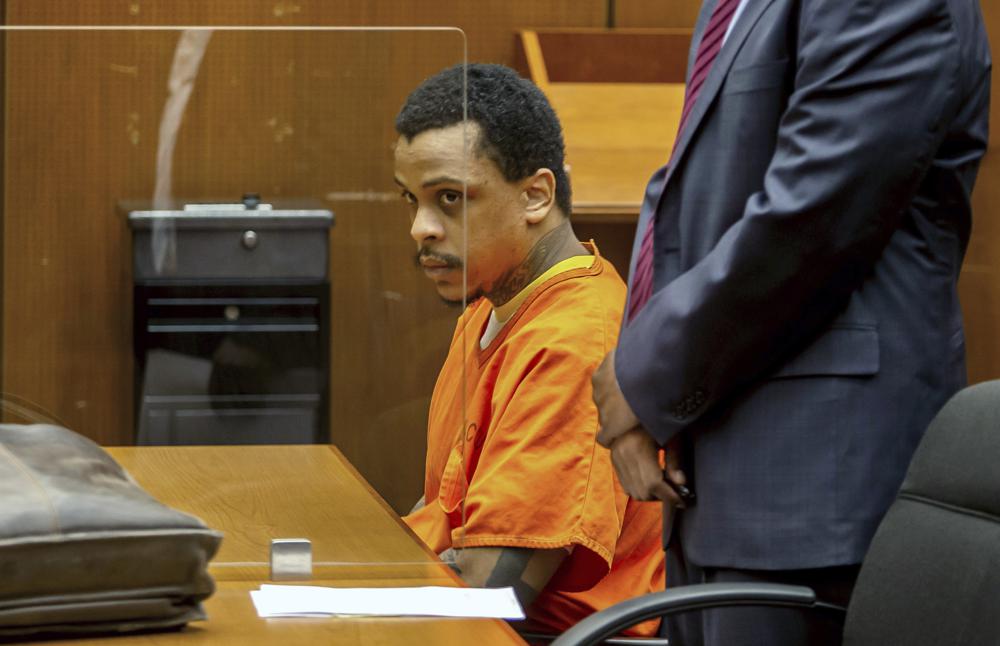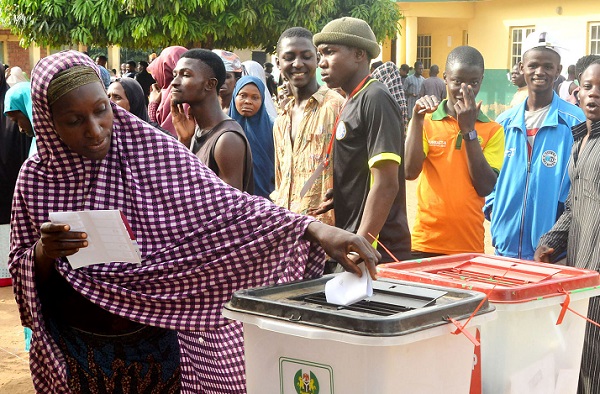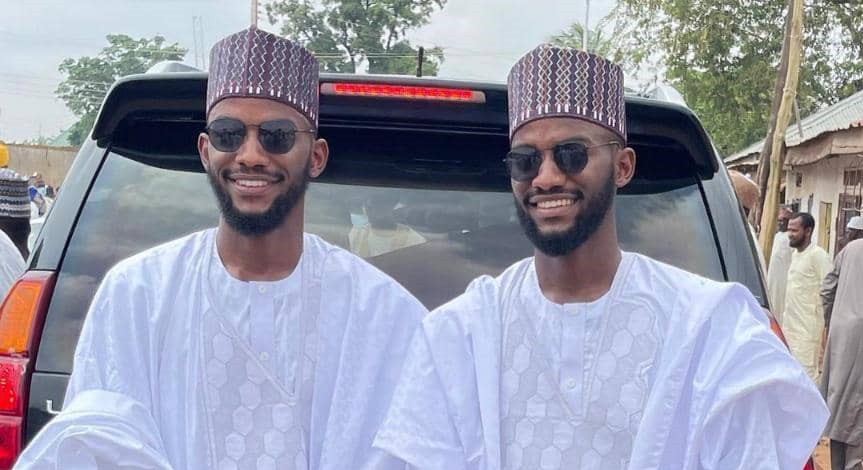As the 2023 polls hold on Saturdays, 25 February and March 11, journalists who have covered elections in the past shared their experiences and fears of covering another general election, the eighth since the return to civil rule in 1999. IRETOMIWA DELE-YUSUFF reports.
Samson Adenekan, a Premium Times journalist, still cringes when he passes by a group of young, unruly men. He cannot help but remembers the sting of the successive slaps that landed on his face while he observed the 2020 Edo state election. Sometimes, he wonders what worse could have happened had he not quickly given up his phone to his attackers.
He shudders when he remembers how he was assaulted and how a fellow journalist, Nathaniel Offel, was beaten up badly while security operatives looked on.
Like Adenekan and Offel, many other journalists and observers had suffered attacks while monitoring elections in Nigeria.
Advertisement
Election violence is not new in Nigeria. Since the return to civil rule in 1999, elections have been volatile, often leading to the loss of lives. The Nigeria election violence tracker by the Centre for Democracy and Development and the Armed Conflict Location and Event Data Project revealed that there have been over 4,100 violent events and over 11,400 reported fatalities between January 2022 and February 2023. The International Press Centre (IPC) also reported that 250 journalists were harassed while covering the 2019 Nigeria general election.
Journalists are obligated to promote transparency and accountability in society, as enshrined in section 22 of the 1999 Nigerian constitution. The Nigerian Media Code of Election Coverage also tasks the media to perform a watchdog role that “enables voters to make informed choices by providing information that enhances their knowledge of electoral processes” and aiding transparency for a free and fair election. Unfortunately, the law offers no protection for journalists. Oftentimes, they are part of the groups usually targeted for violence during the poll.
Journalists criminalised
Accounts by two other journalists illustrate the danger faced by journalists on election assignments. Though Adenekan was physically assaulted, Deborah Coker of the News Agency of Nigeria (NAN) was arrested and detained while covering the Edo state Peoples Democratic Party (PDP) primary elections in May 2022. She recalled being victimised because of an election report she published.
Advertisement
On 23rd May 2022, Coker said she had first reported at the Dan Orbih parallel primary election when the Obaseki-led parallel primary election did not start early. She and her colleagues, Sunny Inarumen of the African Independent Television (AIT) and Ogbomo Osamuyi of the Independent Television (ITV) later headed for an event centre near the Benin airport and covered the primary organised by another faction. After the coverage, she and her colleagues left to join the Obaseki-faction election at the Samuel Ogbemudia stadium.
But they could get to their destination because of the crisis they encountered on the way. They had to go into hiding at the nearby Benin airport on hearing the sound of gunshots in which one Tunde Igbinoba, the chairman of Ward Five of Oredo PDP, was killed. When the gunshot stopped, they ordered a taxi to continue their journey. As they were getting in, they were accosted by a gang of gun-wielding men of the Edo Security Network (ESN), members of the State Vigilance group and the Police.
“They asked us why we went to cover an illegal gathering,” Inarumen recalled.
“Even after we told them that we were journalists doing our constitutional duty, they accused us of providing coverage for an ‘illegal primary’ and that was why they took us to Oko Police Station,” Coker added.
Advertisement
At the Oko police station, the three journalists were forced to write statements. Luckily, Coker was allowed to reach out to her 9-year-old daughter’s school, which closed by 2 pm. She directed her daughter to stay at a shop where she waited till she was finally picked up much later at night.
“…anyone could walk in and shoot me…”
A young journalist, Jeremiah Omoniyi, is yet to forget his experience during the last Ekiti election. He was deployed to the Irepodun Ifelodun local government by the Centre for Journalism Innovation and Development (CJID) during the state governorship election in June 2022. It was his second time observing elections and he was eager to get on the field.
At the polling unit of ex-governor Ayo Fayose, a fight broke out among the voters, and Omoniyi recorded a video and sent it to his newsroom. Later, an official of the Department of State Services (DSS) officer asked for his identity. Despite identifying himself, the officer was unconvinced, and before long, he was surrounded by security operatives who slapped and kicked him.
They soon dragged him into a waiting Hilux vehicle and drove off to a police station in Iworoko Ekiti where they further brutalised him.
Advertisement
“I was stripped of all I had on me and I was down to my shorts that were already torn. I was practically naked. They put me in a stinking isolated cell behind the station. I was very scared because anyone could walk in and shoot me,” he recounted.
Teargassed, slapped for covering an election
Yinka Adeniran, the Nation’s reporter attached to the Oyo state governor’s office, got his own baptism of fire last year.
Advertisement
Police officers kicked him in the stomach and sprayed teargas in his face while covering the Oyo state PDP governorship primaries, even though he was duly accredited. The event was held at the Lekan Salami stadium in Ibadan in May 2022 and he met a barricade at the entrance manned by a police officer with the name tag “I.O Niyi”.
Adeniran narrated his experience this way:
Advertisement
“We met a police officer that said everyone should identify themselves before being allowed to enter. I remember bringing out two ID cards. I showed him that of the Nation newspaper and another from the governor’s office. The other person with me was from the Voice of Nigeria (VON) and when we gave him the ID cards, it looked like he could not even read what was on them. We were also accredited to cover the governor’s office but he paid no regard to it.”
Despite presenting valid means of identification, the police officer denied them entry, arguing that “there are too many journalists inside the venue”.
Advertisement
Adeniran eventually entered without the police’s permission since other journalists also made their way in.
When the police officer saw that he had entered, he ordered other police officers to throw him out. They did not only evict him from the stadium, they also beat him and tore his cloth.
Yet Officer Niyi was dissatisfied with the assault, so he teargassed Adeniran when he threatened to call someone in the governor’s office who invited him to cover the primaries.
Adenekan, Omoniyi, Adeniran and Coker are just a few of the journalists on duty who are constantly harassed and assaulted by security operatives in Nigeria. There are several others.
In May 2022, Toba Adedeji was shot by policemen attached to the Osun state command while covering a protest. The protest ensued as a result of the extrajudicial murder of one Abiola Afolabi by policemen.
In June 2022, the International Press Centre (IPC) expressed its grave concern about the constant attacks on journalists in the line of duty. The IPC noted that the constant attacks on journalists signify a regime of repression.
Prof Ernest Ojukwu, a Senior Advocate of Nigeria (SAN), also expressed worry about the attack on journalists in a report published by the Vanguard. He said, “In all history, the introduction of dictatorship commenced with the harassment of journalists and citizens who spoke out against wrongdoings by the government officials”.
Journalists offer advice, lessons
As the 2023 Nigerian general election draws closer, many journalists have expressed concerns about their safety while reporting the election.
Some are reluctant to put their lives at the mercy of unfeeling security operatives, murderous political loyalists and irate voters.
Notwithstanding, Adenekan, Omoniyi, Adeniran and Coker said they are ready to cover the 2023 elections if they are deployed. Adenekan believes being harassed is one of the hazards of the job and has learnt to be more discreet and cautious while on the field.
“This is the only job I have done my whole life,” Adeniran said.
He, however, noted that no story is worth dying for and he has learnt to always work in a group with other journalists.
Omoniyi was lucky that Taiwo Adebulu of the Cable was around when he was arrested and alerted Omoniyi’s superiors as he was whisked away. Omoniyi agrees with Adeniran’s advice that a reporter should always cover elections in the company of other journalists who can raise the alarm in case of danger.
Coker advised journalists to always be conscious of their environment and utilise their sixth sense while reporting because this would alert them to problems early enough.
Jane Frances Onyinye Nweze, a veteran election reporter, described election reporting as being similar to covering “guerilla warfare” and she advised journalists to not draw attention to themselves while on the field.
Media organisations like Radio Now have taken further steps by providing their reporters with safety kits which include pepper spray and press jackets.
Similarly, Daily Trust newspaper is investing in capacity-building for their reporters on election coverage and how to keep safe.
In partnership with the Canada Fund for Local Initiatives (CFLI), the Centre for Journalism Innovation and Development (CJID) also equipped journalists with vital skills and security tips to keep safe while reporting the 2023 general election.
Security agencies react
Oluwamuyiwa Adejobi, the Force Public Relations Officer of the Nigerian Police Force, has dispelled the fear of journalists interested in covering the 2023 election.
He said the police personnel have been trained on the code of conduct for election security.
“We have considered adequate protection and cover for accredited journalists on essential duty, for the election period, and for all and sundry after the polls. Every accredited journalist is to work with the command police,” he said.
Also, Dr Peter Afunanya, spokesperson of the Department of State Services (DSS), said that the security operatives face more danger than journalists, arguing that some of the journalists’ harassment experiences are “exaggerated.”
Security operatives in Nigeria indeed face great danger while carrying out their duties. Between January and June 2022, at least 157 security operatives, including police officers and soldiers, were killed.
But unlike journalists, security agents are armed by the government for personal defence. For example, ahead of the 2023 general election, the Nigerian government has purchased armoured vehicles, ammunition and riot control agents like teargas and pepper spray, to aid law enforcement agents to perform their duties and protect themselves.
Although journalists report in the same hostile situation, they are unarmed and vulnerable to the harsh realities of elections in Nigeria. And that is the difference that illustrates the danger faced by journalists.
However, Afunaya stated that the agency has trained good officers and made great efforts to better protect citizens during elections.
In a matter of days, elections will hold again and journalists will have another opportunity to cover the important democratic event. Will the security agencies keep their promise to protect the people of the fourth estate of the realm? Time will tell.






